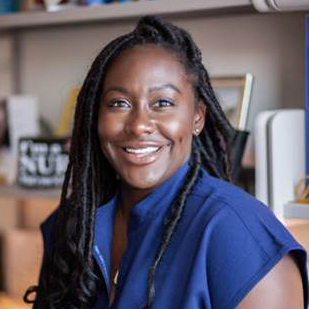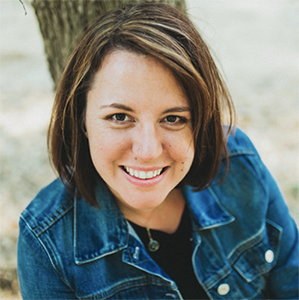Bachelor’s Degree in Nursing (BSN)
How an RN-to-BSN degree can boost your career

What is an RN-to-BSN?
RN to BSN refers to a Bachelor of Science in Nursing (BSN) program designed specifically for licensed registered nurses (RN). These programs are tailored to build upon the existing knowledge and experience of RNs, providing comprehensive study in areas such as physical and social sciences. RN to BSN programs allow RNs to further their education and enhance their skills, opening up opportunities for career advancement and specialization within the nursing field.
Whether you’re finishing up your nursing schooling and preparing to take the National Council Licensure Examination for Registered Nurses (NCLEX-RN) or you’ve been an RN for some time, you may want to consider earning your BSN if you’re looking to advance your career. An RN-to-BSN program, otherwise known as an ADN-to-BSN bridge, can help you earn that degree faster.
In this Article
As the United States prepares to meet increased demand for healthcare due to a large and aging population, the responsibilities of nurses are rapidly increasing. The National Academy of Medicine (NAM), one of the leading independent, evidence-based scientific advisors in the medical industry, is pushing for 80% of RNs worldwide to have BSNs. As of 2023, 71.7% of RNs in the U.S. had a BSN or higher degree, according to the Campaign for Nursing’s Future, initiative of the Center to Champion Nursing in America.
Since a BSN requires four years of education rather than the shorter period of training and education required to earn an RN, this degree shows your capacity for exceptional care in the eyes of many employers. Take a look at what an advanced RN-to-BSN degree can mean for you.
Learn How to Stay Motivated, Balance Work, Life, and More from a Real Student
The benefits of earning your BSN degree
Today, many employers consider the BSN to be the minimum requirement for professional nursing and for progressing in nursing leadership.
The emphasis on the BSN took hold in 2010, when the Institute of Medicine (now called the Academy of Medicine) recommended that RNs have a bachelor’s degree, citing research that indicated BSN nursing correlates with better patient outcomes. The American Association of Colleges of Nursing (AACN) supports this position.
“The majority of Magnet status hospitals—which is the highest designation that a hospital can get, as a reflection of their nursing and shared governance—only hire BSN-educated nurses,” says Tiffany E. Gibson, MSN, RN, NPD-BC, CPN, a nurse educator and owner of New Nurse Academy, a resource for nursing education and professional development. “That is due to the evidence that says that the BSN-prepared nurse shows better patient outcomes due to the classes that they take in evidence-based research and leadership.”
Here’s a look at some of the benefits of earning a BSN compared to just an ADN.
Professional Opportunities
Nurse with an ADN
- May have limited employment opportunities in acute-care settings, especially in Magnet hospitals
- Usually limited career advancement in administration, education, and specialty fields
Nurse with a BSN
- Typically meets employer-specific criteria for moving up the clinical ladder
- Meets requirements for a broader range of jobs outside the clinical setting that require a bachelor’s degree
- Meets prerequisites for Advanced Practice Registered Nurse (APRN) programs
Certification/Special Opportunities
Nurse with an ADN
- Eligible for some specialty certifications when a BSN isn’t required
- Usually limited by employer policies that require a BSN to work in some specialty units
Nurse with a BSN
- Eligible for many certifications
- Meets employer policies that require a BSN to work in specialty units
- Meets criteria to work as a military nurse
Salary
Nurse with an ADN
- Often not eligible for employment in Magnet status hospitals, which may offer more pay
- Higher demand for BSNs may put nurses with an ADN at a disadvantage when competing for better-paying positions
Nurse with a BSN
- May qualify for higher salary upon earning BSN, depending on employer guidelines
- Eligible for more higher-paying positions with more responsibility
Responsibility/Supervision
Nurse with an ADN
- Gives basic clinical care at the bedside
- Charts patients’ status, administers medication, operates medical equipment, and educates patients about self-care
Nurse with a BSN
- Uses evidence-based research to improve patient outcomes
- Applies skills in leadership, management, communication, and problem-solving to lead change
- Performs administrative tasks, care management, infection and quality control, nurse education, and nurse management
Other benefits
- Deeper training: Pursuing a Bachelor of Science in nursing means more training in the physical and social sciences, communication, leadership, and critical thinking. As nursing becomes more complex, it will be increasingly important for nurses to have more education and expertise in these areas.
- Tuition reimbursement: Many registered nurses with an associate degree in nursing (ADN) or a nursing diploma find an entry-level position and then earn their BSN with the help of employee tuition reimbursement benefits. Many employers make this option available because it benefits their employees and the healthcare they provide.
Why an RN-to-BSN degree?
While there are plenty of nurses who succeed in their careers with an ADN or nursing diploma, returning to school to earn a BSN can boost your professional development and give you more career choices. There are also similar bridge programs for licensed practical nurses (LPNs) who want to earn a BSN.
A BSN can sharpen your professional skills, increase your career opportunities and boost your salary.
This degree can help you become more comfortable with the latest medical technology, including platforms used for telemedicine and online doctor visits. A bridge program will also teach you how to work in different settings, such as public health or home care, and in roles—traveling nurse, school nurse or legal nurse consultant—you might not have considered.
RN-to-BSN program overview
The RN-to-BSN degree is a response to higher employer demand for nurses with more education. While ADNs were the norm for many years, the BSN is becoming more common—and sometimes required.
Referred to as a “bridge” program, the RN-to-BSN curriculum is built with your previous education in mind. By the end of the program, students should have a deeper understanding of patient care and sharper analytical and clinical reasoning skills.
As of 2023, there were 747 RN-to-BSN programs across the country, according to the American Association of Colleges of Nursing (AACN). Each school has different requirements, but programs generally last between one and two years. Depending on the program, you may also choose between a part-time and full-time schedule.
Admission requirements
Typically, RN-to-BSN programs are not as competitive as traditional four-year BSN programs, so don’t count yourself out based on past academic performance.
Admissions officers recognize that your professional nursing experience has given you skills and abilities that may not be measured by traditional academic indicators, so a holistic review of your education, experience, and professionalism is often considered.
While admission requirements vary by program, they can include:
- Minimum cumulative GPA of 2.5 on a 4.0 scale
- Proof of an ADN
- Evidence of a current RN license
- An undergraduate application
- Official transcript from all post-secondary schools previously attended
- Personal statement
- Two recommendations
- Resume outlining education, work/volunteer experience, extra-curricular activities, leadership roles, honors, and awards
- Essay typically related to your leadership qualities, professional goals, and commitment to nursing
- Passing score on HESI Admission Assessment (A2) Exam
Passing the HESI Exam
The HESI (Health Education Systems Inc.) exam helps some schools identify whether students will pass other required nursing exams, such as the NCLEX-RN. The HESI exam isn’t required by all schools, so it’s a good idea to research prospective programs. If you do need to take the exam, you’ll be tested in seven areas:
- Reading comprehension
- Biology
- Vocabulary and general knowledge
- Chemistry
- Grammar
- Anatomy and physiology
- Basic math skills
The HESI exam also includes a personality profile and assessments of your learning style and critical thinking skills.
Once enrolled in school, you’ll spend up to two years immersed in nursing courses and clinical experience.
RN-to-BSN curriculum
Since students who are enrolled in a bridge program have on-the-job experience, you’ll find that the courses will build upon existing knowledge. Instead of repeating a handful of courses, you’ll examine more sophisticated and complex topics. Here’s a brief outline of courses you may take:
Transition to a professional nursing course
One of the first courses you’ll take will introduce you to the role of a professional nurse and the many paths you can take, such as educator, advocate and coordinator of care.
This course will delve into evidence-based practice, nursing responsibilities, and ethics. Nursing theories and concepts will help you understand the profession and prepare you for more advanced nursing. Once you understand these fundamental tenets, you’ll be ready to move on to courses in research and other specialized topics.
Clinical experience
Clinical experience is also an important part of an RN-to-BSN program. In fact, the AACN’s RN-BSN Education Task Force recommends that all programs provide practice experience so ADN or diploma nursing students can become proficient at the baccalaureate level.
Defined as “practice experience” by the task force, the lessons are broken into two categories: direct and indirect care. The intent is to build a student’s proficiency in areas such as leadership development, inter-professional collaboration and communication, clinical prevention and population health, and integration of technologies into practice.
Your RN-to-BSN program should include both direct and indirect care clinical experiences. Here are some examples:
Direct Care
Indirect Care
Provide care directly to the patient and communicate with patient and their family.
Craft new policies and collaborate with others for approval.
Evaluate practice guidelines and determine changes.
Create a policy for better cohesion among units.
Create a coordinated, patient-focused plan of care.
Teach other nurses and staff how to use new technology.
Collaborate with other healthcare providers to improve care.
Implement a new software program with the help of IT staff.
Work with other nurses to implement a new procedure.
Partner with community leaders to create a disaster/emergency preparedness plan.
Make sure your BSN program includes clinical training. This additional hands-on learning will provide you with necessary in-depth knowledge.
Upper-level nursing classes
As an RN with an associate degree, you’ve mastered the knowledge and skills required to work in a clinical setting. A BSN curriculum goes deeper and explores the theories at the foundation of nursing.
“With the BSN, you’re getting more of the theory and didactic behind disease processes and treatment and the nurse’s response to these things,” Gibson says. “You’re getting more leadership classes, informatics classes, and evidence-based research. Recently, there’s also been a focus on community health, community collaboration, and more emphasis on primary care and prevention.”
Some examples of upper-level nursing topics and classes include:
- Role of the baccalaureate-prepared nurse
- Health assessment
- RN information systems
- Nursing research and evidence-based practice
- Leadership and management
- Collaborative healthcare
- Community health nursing
- Health policy
- Capstone (final project)
Picking the right school
With hundreds of RN-to-BSN schools to choose from, how do you know which one is right for you?
As you narrow your list of potential programs, start by ensuring they’re accredited by an agency recognized by the U.S. Department of Education.
There are three important reasons to attend an accredited program:
- A degree from an accredited program will pave the way for you to apply for state licensing and professional certifications.
- You can transfer credits from an accredited program to other accredited programs.
- You must attend an accredited program to qualify for federal financial aid and most scholarships.
BSN program accreditation is awarded by three organizations. Check the databases of these groups to determine BSN program accreditation:
Accreditation offers several benefits. First, it ensures you’re receiving a quality education that meets strict industry standards. It also opens the door to other opportunities, such as eligibility for federal financial aid. And, if you decide to attend graduate school in the future, you’ll need a BSN from an accredited program.
Once you’re ready to compare programs, consider these factors:
Prerequisites
If you’re a nurse with an ADN and an active RN license, you’ll likely qualify for ADN-to-BSN programs. If you’re lacking a specific prerequisite, you may be able to take it with your ADN-to-BSN classes.
Here’s a sample of potential RN-to-BSN prerequisites:
- Anatomy and physiology I & II
- Microbiology
- Chemistry
- Nutrition
- Statistics
- Developmental psychology
- Psychology
- Sociology
- College writing I & II
- General electives
If it’s been more than seven years since you completed your ADN, some programs may require you to retake specific science courses. However, many ADN-to-BSN programs accept ADN courses no matter how long ago you completed your degree, so it’s important to investigate all criteria when you choose your program.
Graduation requirements
Programs have different graduation requirements, and the number of credits can vary. Since you already have an RN license, you’ve already met state licensure qualifications for clinical hours, but some BSN programs may require more.
“In researching an ADN-to-BSN bridge program, you want to find out if there is a clinical or capstone requirement and when in the program this requirement falls so you can set yourself up for success and have an idea of what the workload is going to be,” Gibson says.
A capstone generally is a final project that brings together the knowledge and skills you’ve learned in your coursework. It’s designed to give students leadership experience and typically involves working one-on-one with a nurse in a healthcare or community-based care setting.
Depending on your employer’s relationship with your school, it may be possible to complete your capstone where you work, though usually you’ll have to do it after your normal work hours.
It Takes a Team
Regardless of the specific requirements, the pace of an ADN-to-BSN program can be hectic for a working nurse. Gibson suggests getting your family on board with helping you achieve your goal and sharing when your schedule will be most challenging so you can get help.
“When you begin school, it’s important to let your family, your children, and your loved ones know that for the next 12 to 18 months, your focus is passing this course successfully,” Gibson says. “When you’re a working adult and you have a lot going on, your support system is your number one.”
Salary potential
The salary you earn with a BSN will depend on how your employer values your education. Some employers provide nurses with a pay increase upon earning a BSN, or they might hire nurses with a bachelor’s degree at a higher rate than your ADN counterparts doing the same job.
Other factors that can affect pay include:
- Where you live
- Your position
- Where you work
- Your experience
- Demand for nurses with a BSN
- Whether you have a certification that’s in demand
According to the U.S. Bureau of Labor Statistics (BLS), the median annual salary for RNs is $86,070, although this figure encompasses RNs with all levels of education—ADN, BSN, and above. PayScale breaks it down further and says a nurse with a BSN can earn on average about 30% more than one with an RN.
Salaries for nursing positions that typically require a BSN include:
Nursing Role
Median Annual Salary
Charge nurse
$86,070
Nurse informatics specialist
$62,990
Nurse manager
$110,680
Pros and cons of going online
Considering going back to school to earn your BSN after many years on the job? You’re not alone. Many people take a break in education because of factors such as a heavy workload, tending to family obligations, traveling for work, or living in a rural area far from a traditional school.
And because RNs have some of the busiest schedules, time management can be a challenge when returning to school. This is where it could benefit to enroll in an online BSN program. The drawbacks are missing out on classroom interactions with your peers and face time with your instructors, though you’ll have that interaction in your on-the-job training.
The main benefit of online learning is flexibility. You’ll take non-clinical courses online, completing assignments on your schedule and by a specified due date. Clinical training is typically done at the nearest hospital or other medical facility.
If you’re comfortable with online learning, an online RN-to-BSN offers several advantages in addition to flexibility. Meeting classmates virtually means that you may have the opportunity to explore new perspectives by collaborating with nurses from around the country in a highly interactive environment.
While most of your learning will occur independently, online programs provide personalized technical and academic support from advisors, staff, and tutors by using state-of-the-art interactive web-based platforms. Online programs may also allow you to finish your degree faster since they typically offer classes year-round, rather than following a traditional academic calendar.
Is Online Learning Right for You?
An accredited online education is comparable to what you’ll receive in a traditional classroom setting, but it’s important to determine whether online learning is right for you. Consider how comfortable you are learning and communicating remotely and find out whether your school provides resources to support online learning.
“Some of the online programs have amazing mentorship programs in which you’re immediately paired with a student who is ahead of you or someone who has already graduated,” Wells says. “That’s huge to have someone available to you when you can’t figure out something. However, some programs expect you to be a little more autonomous and tech-savvy, so you want to find the one that’s the best fit for you.”
Online or classroom—which student are you? Take our quiz!
Do I need a BSN?
Better pay, more knowledge to keep up with 21st century technological changes and advancements, increased fluency in your craft: Overall, there are many reasons why going for your BSN is a super smart move—one that will pay off for your patients, your employers, and your personal well-being.
Nursing is a competitive field, and nurses with a BSN will be sought after as healthcare continues to evolve. This degree also opens the door to graduate-level training. If you decide to pursue a career as an advanced practice nurse, a bachelor’s degree is the foundation you’ll need for an MSN program.
What employers say
Employers, from hospitals to physicians’ offices, want the most qualified nurses on their staff. This is especially true as nurses spend more time treating patients who are suffering from chronic illnesses.
The numbers also show that employers are more apt to consider nurses with a BSN, according to a 2022 survey conducted by the AACN. Not convinced? Consider these statistics:
of hospitals and healthcare settings require new hires to have a bachelor’s degree.
of employers “expressed a strong preference” for hiring graduates of BSN programs.
It makes sense. After all, research has shown that better patient outcomes have been linked to nurses with a bachelor’s-level education.
What industry experts say
In addition to the NAM’s push for more nurses to have BSNs, some states have considered the “BSN in 10” initiative, but so far only New York State has signed it into law. This initiative requires nurses to earn the degree within 10 years of getting their RN license.
According to the AACN, BSN programs are “growing in importance” as this degree is the minimum requirement for nurse managers and nurse leaders who work in Magnet hospitals, which are recognized for excellence in nursing and patient outcomes. Other organizations that require nurses to have BSNs include the military and the federal government.
Bottom line: While a BSN may not be required everywhere just yet, there’s a move in that direction.
What former nursing students say
A BSN can also make you feel more accomplished. According to the National Student Nurses’ Association:
felt personal satisfaction after earning a BSN
saw professional growth
expanded their knowledge base
Nurses who earn their BSN often take on more expanded roles and have more opportunities in their field.
Other accelerated BSN pathways
If you have a bachelor’s degree in another area of study, “accelerated” BSN programs are available. In this case, you’ll focus primarily on nursing studies instead of liberal arts courses.
These programs are rigorous and take about 18 months to complete. Because of their fast-paced nature, accelerated BSN programs require most of your time. Some schools even require that you forgo working while enrolled because students are expected to maintain very high academic standards.
However, if becoming a full-time student isn’t an option, some accelerated BSN programs offer evening and weekend classes that allow students to continue working while they study.
While heading back to school may feel daunting, earning a BSN can have significant payoffs.
According to the most recent figures from the U.S. Bureau of Labor Statistics, registered nurses earn a median annual salary of $77,600. PayScale breaks it down further and says a nurse with a BSN can earn on average about 30% more than one with an RN.
Scholarships and Financial Aid
“There is a trend for a lot of hospitals to provide financial support to associate degree nurses to get their BSN,” Wells says. “An employer won’t pay for the whole thing, but often there’s a discount or scholarship that you can get. Your employer is also interested in getting you a BSN because, when they’re applying for Magnet status, that’s intrinsic to their application.”
Federal Financial Aid
Even if you qualify for employer tuition reimbursement, the cost of paying your portion of an ADN-to-BSN program may be more than you can afford. If this is the case, you may be eligible for need-based financial aid from your school or the federal government.
To find out if you’re eligible, complete the Free Application for Federal Student Aid (FAFSA), a form that schools and student loan lenders use to determine your financial status.
You may also qualify for nursing scholarships or financial awards based on academic merit or other criteria unrelated to financial need from sources such as:
- Financial awards from your school or program
- State-funded nursing incentive programs
- Nontraditional student scholarships
- National and local chapters of professional nursing associations
- Military or other government service scholarships
Certification
Earning a BSN doesn’t require you to specialize but earning a specialty certification is one way to broaden your nursing opportunities.
“With certifications, you can start expanding yourself as a ‘brand.’ You, as a nurse, are a brand,” Gibson says. “The more credentials and education you have, that validates that you are an expert and makes you, as a brand, more marketable. It allows you to demand more compensation, and it opens doors.”
Each specialty organization sets its own eligibility requirements, which typically include a minimum level of education and experience in the specialty. While all specialty certifications don’t necessarily require a BSN, some employers may require RNs to have a BSN to work in certain specialty units or positions.
Career outlook
As more hospitals focus on hiring nurses with BSNs, the degree may become necessary to remain competitive and current as a professional nurse.
The BSN is considered a steppingstone to positions that involve more responsibility and decision-making in a changing healthcare environment. It is also a sound foundation for more advanced nursing degrees in advanced practice, education, and administration.
“Nursing as a profession is very traditional in that it values education and credentials a lot,” Gibson says. “So, the more academic education you have, the more valuable you may be viewed because nursing has a traditional hierarchy and thought process.”

With professional insight from:

Tiffany E. Gibson, MSN, RN, NPD-BC, CPN
Nurse Educator, Professional Development Practitioner, Diversity & Inclusion Specialist

Sarah K. Wells, MSN, RN, CEN, CNL
Academic and Professional Development Expert


